The Secrets of Sticker City
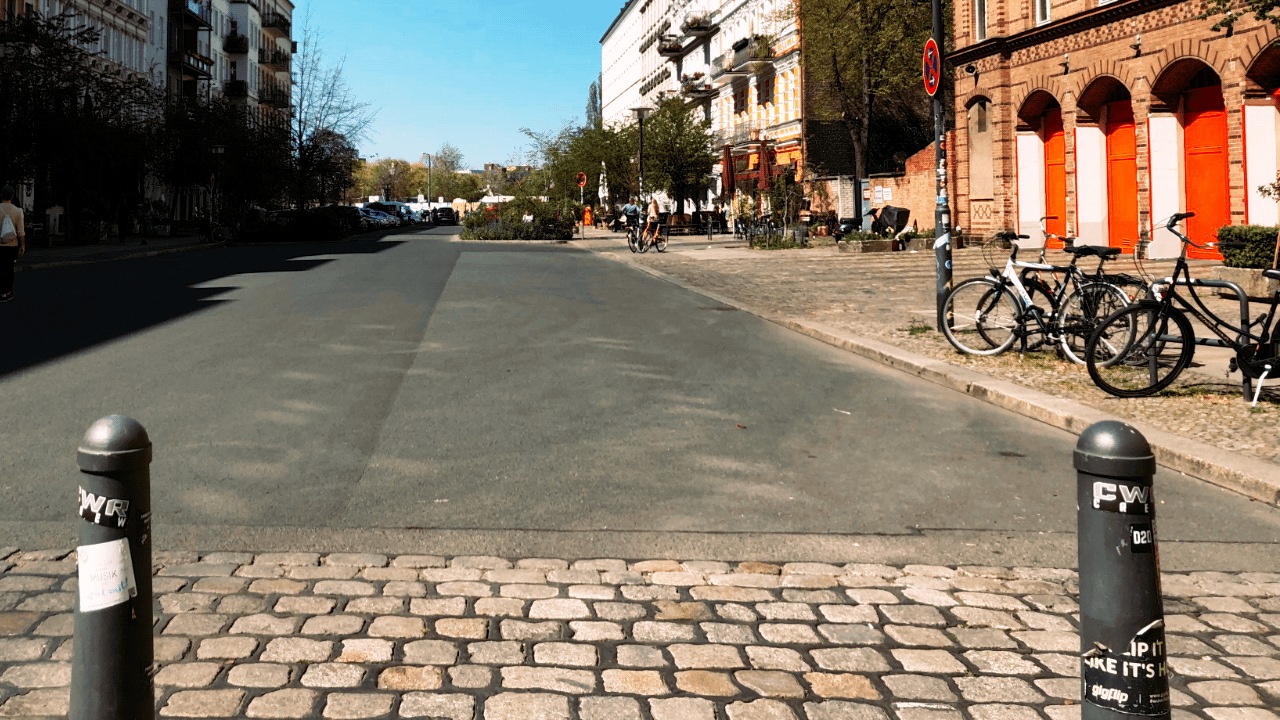
This week, longtime 65 comrade and graphic artist Caspar Newbolt wrote a short thing about the artwork he made for my Telex From MIDI City album last year.[1]
As Caspar points out, this was all pulled together during lockdown in Berlin. Caspar and I would habitually meet at Volkspark Hasenheide, walking in socially-distanced loops, drinking coffee and chatting about our various projects and, eventually, the Telex artwork.
One of the things about Volkspark Hasenheide, indeed one of the things about all of Berlin (and I guess many other cities), is that essentially every signpost, every street light—pretty much every piece of well-placed public infrastructure—is covered in stickers.
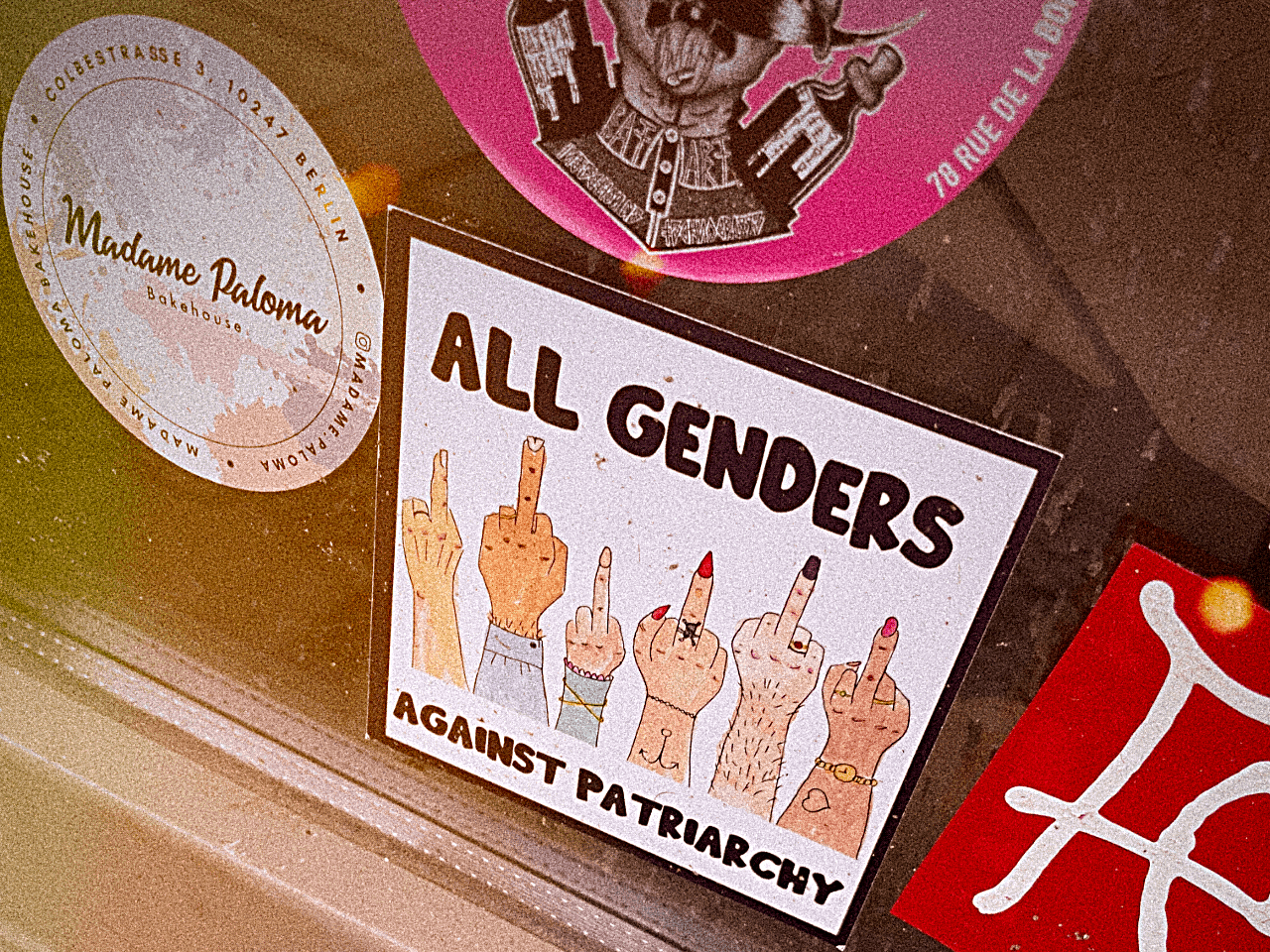
I like to think of these stickers as evidence of another city hiding just under the surface. Like a mycorrhizal network under a forest, the stickers are the tips of this vast, rhizomatic mesh of ideas, not necessarily aware of each other, but with a broadly shared intent.[2] Proclamations, provocations, agitations. Anti-fascist actions, trans-rights, free Palestine, musicians, techno parties, artists, food pop-ups, smash the AfD, demands to address the climate emergency... A fluttering of life and scrambled hope. On any journey through the city or loop around one of the many volksparks, thousands of these tiny communiques quietly jostle not for my attention exactly, but for absorption into my subconscious.
Back in Sheffield in the early 00s, at the dawn of 65days, parsing the landscape of a city through its stickers was a language I was fluent in. Walking through Sheffield, its various happenings could be read through the ebb and flow of this no-budget, guerilla approach to communication. They'd never last long, usually falling victim to either rain or just more stickers. 65days and our burgeoning Dustpunk collective and friends would regularly contribute our own little calls to action. It was possible to chart the rise and fall of punk shows, drum'n'bass parties, zines, short-lived but enthusiastic local record labels, club nights and so on through the sticker-riddled telephone street cabinets and postboxes on the blearly-eyed walk to work.
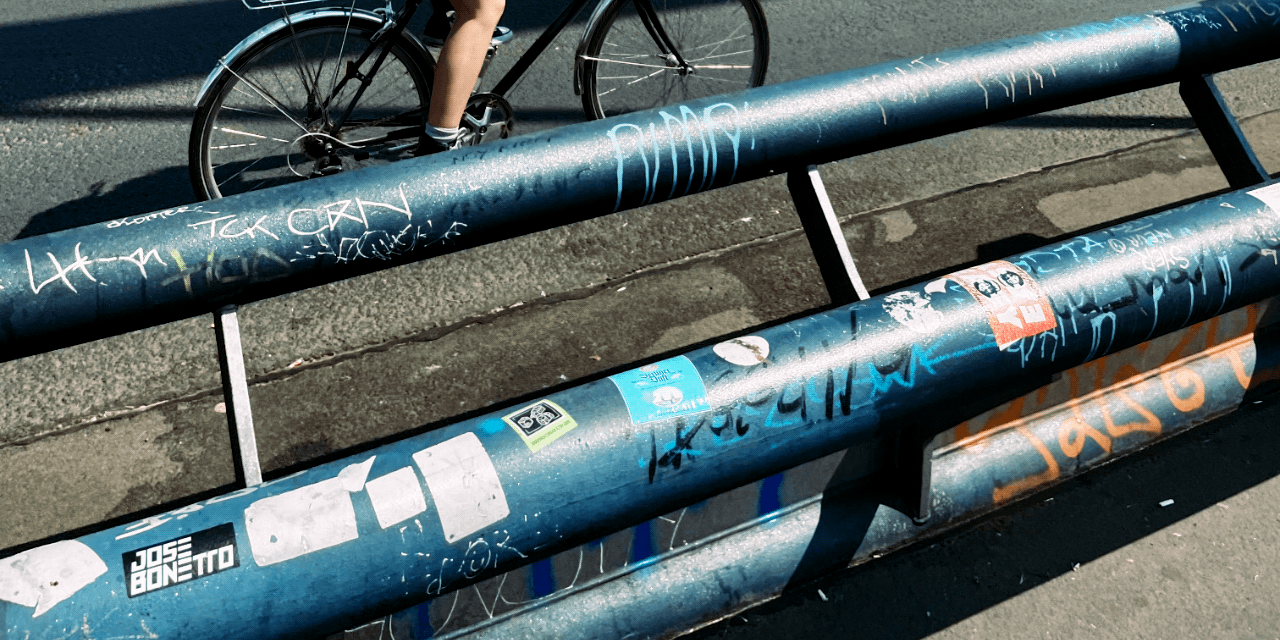
Reading about the Telex artwork reminded me of these walks-and-talks with Caspar, which reminded me of the endless serenade of stickers that accompanies me when walking anywhere in Berlin. And as I idly started to write about this, it slowly dawned on me how the stickers and my album were so obviously connected, I just hadn't noticed. And this realisation dragged up memories of when 65 were grappling with the making of replicr, 2019.
The period of 65days pulling this album together in the studio was full of conversations about meaning, intent and, inevitably, Walter Benjamin's Angel of History:
The Angel of History must look just so. His face is turned towards the past. Where we see the appearance of a chain of events, he sees one single catastrophe, which unceasingly piles rubble on top of rubble and hurls it before his feet...a storm is blowing from Paradise, it has caught itself up in his wings and is so strong that the Angel can no longer close them. The storm drives him irresistibly into the future, to which his back is turned, while the rubble-heap before him grows sky-high. That which we call progress, is this storm.
There we all were, our backs to the future, trying to discern/construct meaning in what we had done by examining the ruins of the past. If you follow the confused and noisy plight of 65days then you already know that all this led to the Wreckage Systems project. But during replicr, 2019, the crux of our conversations was about the struggle of figuring out what it was we had made. We knew we had made something. Even if we couldn't nail down the specifics of 65's quality control thresholds, we knew that this collection of songs had passed our tests. We weren't painting by numbers, we weren't churning out content to sell records. We'd made something we were proud of and wanted to share. But also we didn't know what exactly it was we had made or why.
All we could do was examine it now that it existed, name it, speculate and reverse-engineer meaning and intention. This meaning was 'made up' and yet also became true and so somehow was always-already the case. Or to put it another way, we decided that just because we didn't know what we were doing at the time, it didn't mean the intention we assigned to it afterwards wasn't real. The making of the record wasn't just capturing the songs — the work was a rolling ball of confusion, an ongoing practise of self-reflexivity, and that included us trying to decode the mystery of what we had done, and tentatively offering that up in the form of the album title, song titles, and the overall presentation of those songs.
If 65 still exists in a decade's time, and from that distance we figure out that replicr, 2019 was actually about something else entirely, then that too will have always-already been true. It will have just taken us a while to have realised it.
But just because the meaning of an album (or anything) might not be static and is rather a nebulous, fuzzy notion that can be interpreted in many different ways, I don't think it means it has to be a free for all. Doesn't mean that it is all arbitrary and anything can mean anything. As China Mieville neatly put it when discussing the manifesto form, even though all texts are to some degree polysemic:
This is not licence for epistemological anarchy, according to which anything, any reading, always goes. But it is to acknowledge that no text, whatever its authors (or reader's) intent, can have a simple, singular meaning. Every text will generate something like a tangle of meanings and connotations, more or less concentrated around a core, and more or less protean or stable, according to political, social and linguistic context. As one playful formulation has it, rather than being straightforwardly 'about' something in particular, every text is inevitably surrounded by a 'vibrating aboutness cluster'. The context, content and range of that cluster must be accounted for as part of an analysis.
All of this is to say: making meaning is slow and confusing and it doesn't necessarily happen at the same time as making the thing that the meaning is applied to. But! Even though things are always going to be open to interpretation, grappling with it enough, even if it takes a while, makes it sometimes possible to pull reliable patterns out of the debris left in its wake.
And so only now I have achieved this distance from lockdown in Berlin both temporally and geographically (I'm not living there right now), do I realise the degree to which Telex From MIDI City's stubborn utopian imagining was informed by the secrets of Sticker City. That on some level of awareness, not just during mine and Caspar's lockdown loops, but through my everyday moving through the streets of Berlin, I was being bolstered by the knowledge that this other reality was layered right next to mine, and I could experience it vicariously through this haphazard, endlessly mutating scattering of sticky art and sloganeering.
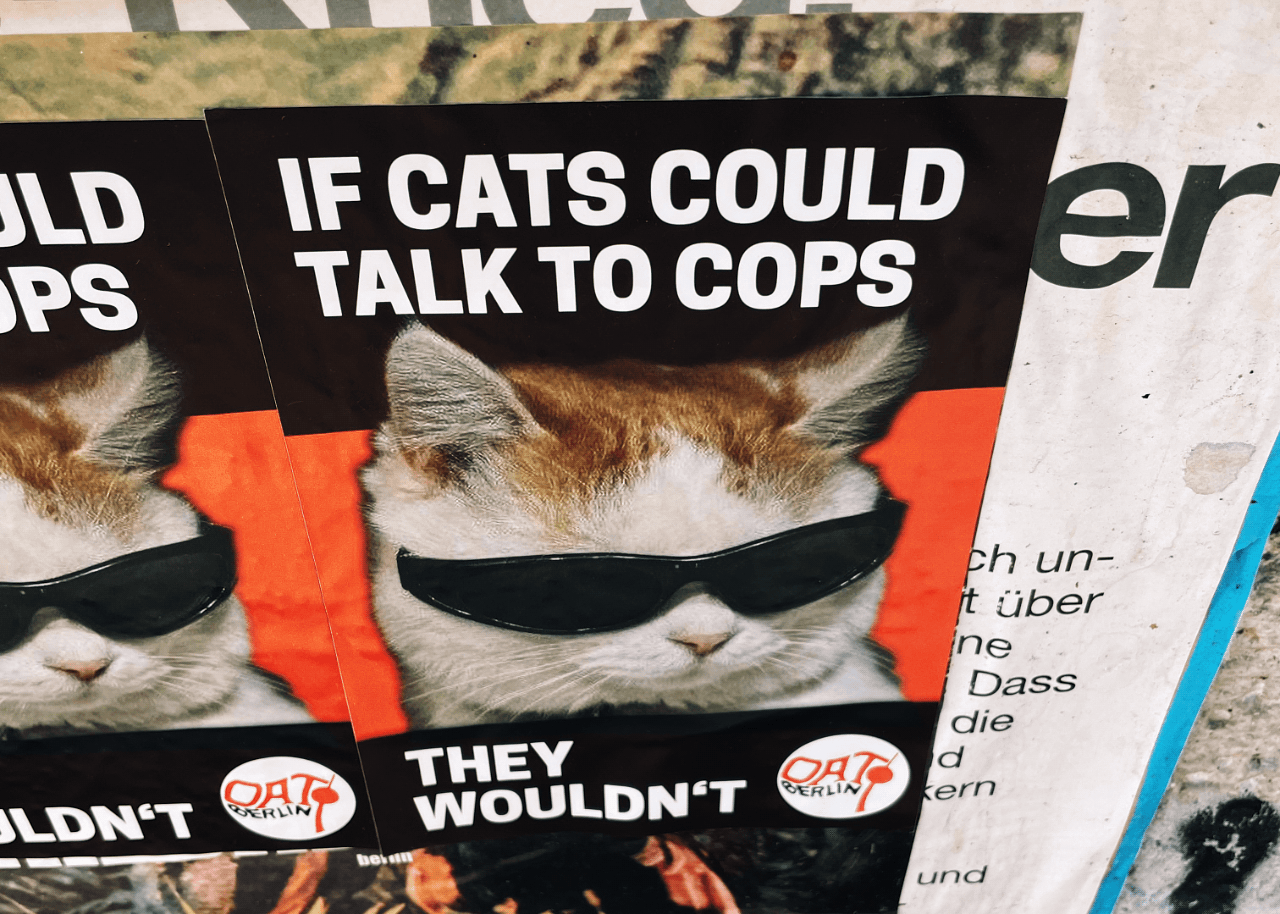
My Berlin is/was the daytime Berlin. It was cycling to libraries and bakeries, sitting in parks, bougie filter coffee and falafel. (ICH BIN GENTRIFICATION.) I wasn't partying at Berghain. I wasn't living off of Club Mate and dancing to techno all weekend, wasn't organising protests from a squat. But like another China Mieville text The City and The City, my world and this other world I could catch a glimpse of through the stickers were still inhabiting the same place at the same time, and it was an invigorating feeling. I took not only solace but joy from knowing it was out there.
And I guess perhaps that is what I was going for with Telex From MIDI City? A way of telling myself and whoever else might be interested that by making something and putting it into the world—whether that is music or writing or even something as tiny and disposable as a sticker—it can contribute in some small way to this chorus of tiny ruptures, this messy utopian impulse, this chaotic, decentralised desire of wanting things to be different. To take part in a collective imagining of better futures.
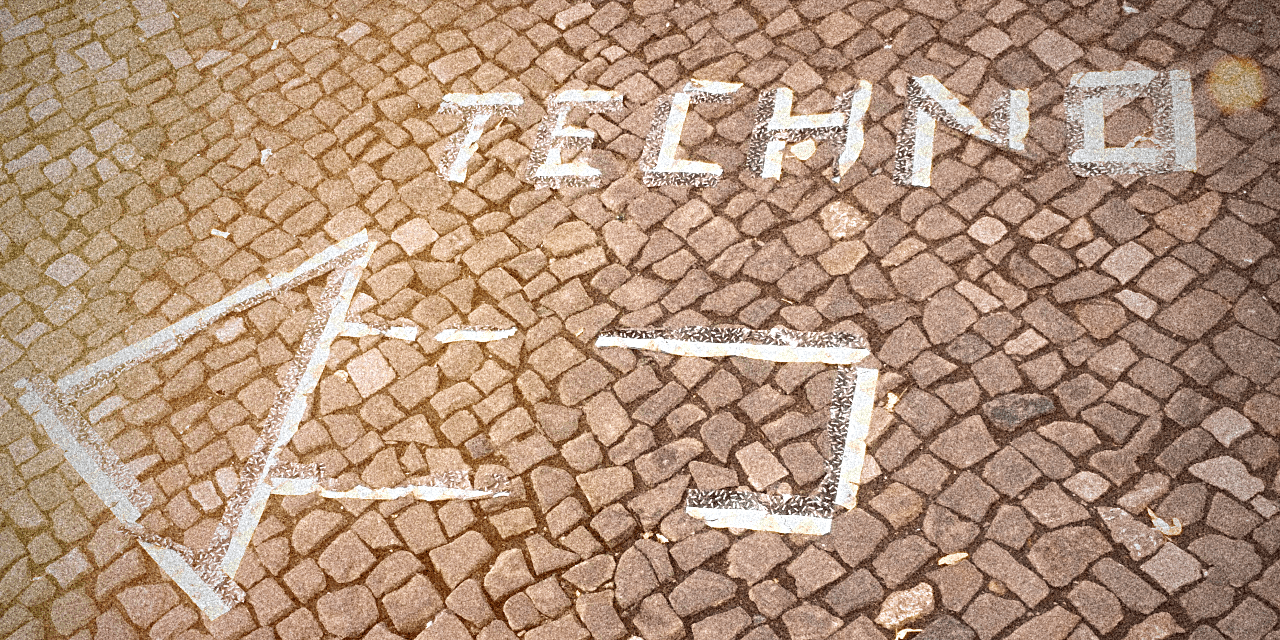
One small correction I would like to make: I do not have a 'love of emojis', but rather a 'love of annoying Caspar with emojis'. ↩︎
Weirdly, the day after I wrote this I stumbled across this paper that also uses the metaphor of fungal networks to describe Berlin nightlife. They definitely appear to have put more thought into it than I have. ↩︎

Member discussion